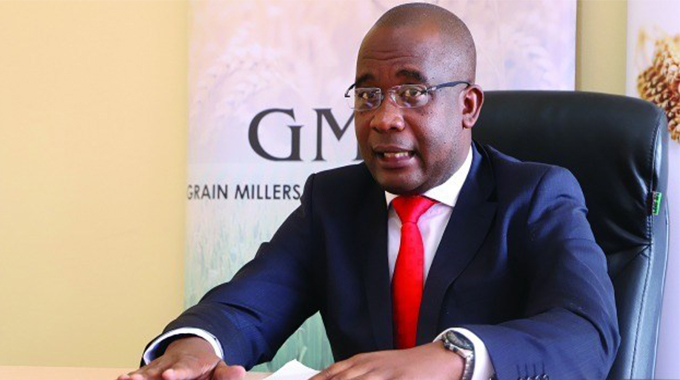Private sector targets 90 000t wheat output

Natasha Chamba, Business Reporter
THE private sector is targeting 90 000 tonnes of wheat output under contract farming this year after securing adequate inputs worth US$12 million.
The development comes at a time when the Grain Millers Association of Zimbabwe (GMAZ) appointed a National Wheat Contract Farming Committee (NWCFC), a technical committee mandated to lead the winter wheat contract farming for the next three years.
The NWCFC is chaired by GMAZ chairman Mr Tafadzwa Musarara who is deputised by Graene Murdoch of Paper Hole Investment.
Mr Murdoch said the NWCFC was a response to Government’s call for the private sector to intensify contract farming ventures to complement public agriculture support interventions.
“Major contractors in the agricultural sector involved have prepared to commit to a minimum of 15 000 hectares to a programme of wheat this year. It is anticipated that an increase should generate a minimum of 90 000 tonnes of a reasonably good quality wheat for harvest in October or November 2019,” said Mr Murdoch.
“This is below national requirements of 450 000 tonnes yearly but will go a long way in reducing imports, which consume a great deal of forex.”
The committee is promoting and expanding contract wheat farming in all districts of the country through attracting local and international investors.
Mr Murdoch said the programme will also design, promote and supervise agro-extension services for the negotiation of wheat producer prices and subsidies with Government and farmers’ unions.
He said NWCFC will focus on developing legally binding contract farming agreements as well as coordinating an efficient farm inputs and machinery mobilisation programme locally.
“Last year the national wheat output was just above 160 000 tonnes and if the private sector alone can generate 90 000 tonnes this year the country will import less,” said Mr Murdoch.
“Winter wheat farming officially begun April 1 and the private sector has already begun distributing inputs to farmers to plant early.”
Meanwhile, Government is working on increasing the hectarage of wheat from 43 000 in a bid to ensure self-sufficiency within the market, saving the country foreign currency and creating jobs.
However, experts say even if the national requirement is attained the country will need to supplement local wheat with imported wheat to make good quality bread.
Mr Murdoch said local wheat was mainly used for self-raising flour, biscuits and spaghetti among other products.
— @queentauruszw










Comments